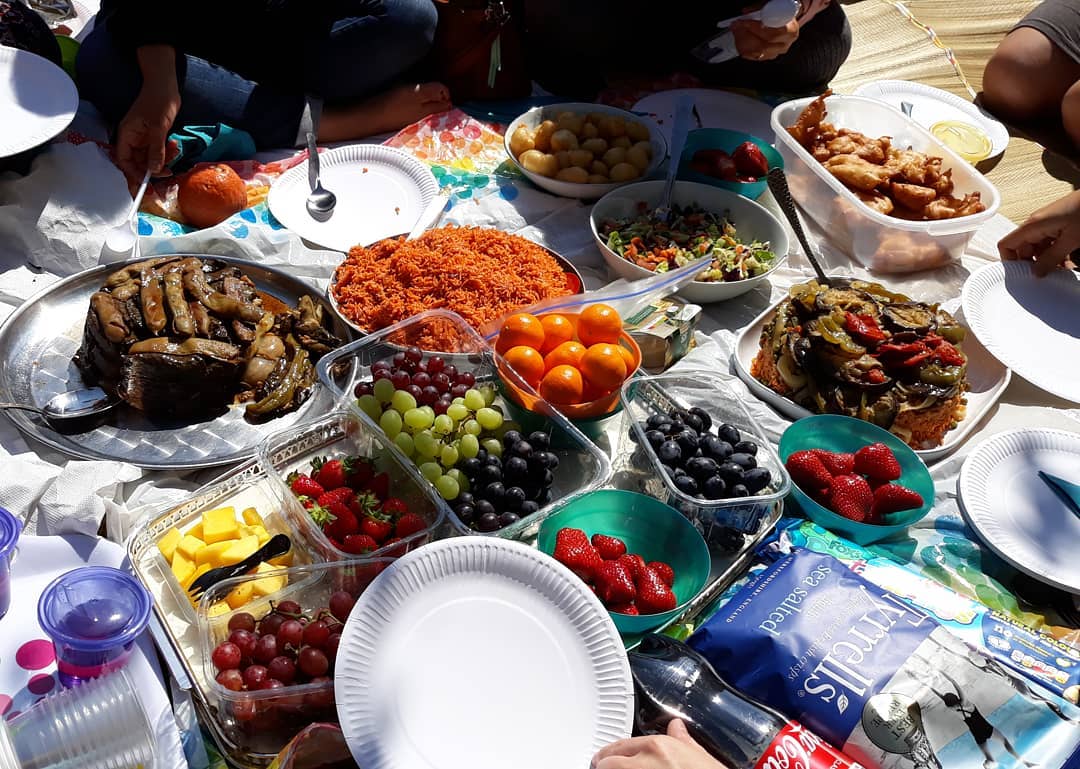
ICN Ladies’ Conversation Corner Summer Picnic 2019
When COVID-19 arrived in the UK it all became a bit more real to me after I walked into the supermarket to find shelves of basic items such as pasta, rice and toilet paper empty. The kneejerk reaction for many people was to panic-buy essential items, or even hoard them. As the number of COVID-19 cases in the UK increased, many began to question the government’s preparedness for the pandemic. There were concerns for the most vulnerable in our communities and families.
As the lockdown and the call for social distancing was implemented, we had to adjust to our ‘new normal’, taking extra precautions to wash our hands thoroughly and more often, and possibly to wear a mask when doing the food shopping. All of a sudden, our own environment no longer felt safe. Scenes from science fiction films became the new normal.
Many of us started to create a safe bubble at home for ourselves and our immediate family. As the lockdown continued reality began to sink in that this may go on much longer than we first anticipated, and things might never go back to the old normal. Concerns arose as to how this will affect our jobs and the economy. As we began to miss family and friends, it no longer felt like a much-earned rest. Contact with others only through social media and Zoom is just not the same.
I have had a lot of time to reflect and think about what COVID-19 has revealed:
- How fragile our systems are (NHS, political and economic, etc)
- That no matter how individualistic our culture is, our choices affect others not only locally but around the world
- How generous or selfish we are
- The best and worst in us
- That borders mean nothing to viruses
Our response to COVID-19 should also help us to be more understanding of refugees, asylum seekers and vulnerable migrants who flee their country for safety due to war, natural disaster, or economic crisis. When faced with danger we as humans will do whatever it takes to make sure our family is safe.
For those who have already fled to the UK for safety and made their home here, they may now feel that nowhere is safe. The trauma they have experienced from war may resurface. They tell us that they are always concerned for family they left behind and are not able to visit.
You may feel this paints a discouraging picture at first glance, but it demonstrates why it is so important for the staff of ICN to continue supporting refugees, asylum seekers and vulnerable migrants through this crisis. That may look different for each of us as we work from home, but we continue to seek out creatives ways to engage with those who we have helped to rebuild their lives in Bournemouth, Christchurch and Poole.
As support worker for ICN, my typical week in normal times includes leading a Tuesday morning Ladies’ Conversation Corner where women can come to practise their English and build friendships. Each week we have a different activity, which may involve art, crafts, culture and food. We meet weekly to provide a safe place where the ladies can come and be themselves and receive friendship and support. The rest of my week is filled with home visits and two homework clubs. I count it an honour and privilege to love and care for these families who have taught me about strength and resilience. I very much look forward to the day when we can gather again, and I hope it can include hugs, music, dancing and food from around the world.
Anita Dalkin – Support Worker for Women & Families
23 April 2020

